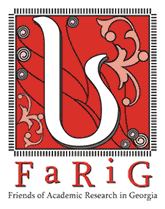An obituary by Bruce Clark
PROFESSOR ANTHONY BRYER, who has died aged 78, was an exuberant, charismatic historian and lecturer who did more than anybody in his generation to stimulate the study of Byzantium in Britain and beyond.
A field once dominated by earnest French and Germans became popular and, above all, enjoyable thanks to his enthusiasm and mischievous humour. One fruit of his work was a congress in 2006, when 1,000 Byzantinologists from every corner of the world, including Brazil and Japan, visited London for a week of spectacular cultural, social and academic events.
Instead of writing endless tomes, Bryer was at heart a traveller and pedagogue who delighted pupils with recondite, well-distilled knowledge. Two cities loomed in his life, both conurbations that lived in the shadow of larger ones but had importance, he believed, in their own right. They were his home town, Birmingham, and his favourite place: the Black Sea port of Trebizond, once the epicentre of a mini-Byzantine realm, a little Constantinople.
He moved to Birmingham as a lecturer in the mid-1960s, creating an expanding nucleus of knowledge about Byzantium and its aftermath. Colleagues in Oxford and London looked askance, but he cared little. From 1976 to 1994, he ran Birmingham University’s Centre for Byzantine, Ottoman and Modern Greek studies. He turned students from many places into temporary Brummies: he made them think creatively, and without nationalist prejudice, about the interplay of Greek, Turkish and other cultures on Europe’s southeastern edge.
He loved everything about Trebizond, founded as a Greek colony 3,000 years ago, and its hinterland. At 20 he began exploring the verdant mountains nearby and documenting the remains of wealthy Greek monasteries which survived until 1923. His doctorate described Trebizond’s emergence in the 13th century as a bastion of Greek Orthodoxy after Crusaders seized Constantinople. He later brilliantly portrayed people in that region who in Ottoman times manoeuvred between Christianity and Islam, practising bits of both. He understood the area’s material culture, including the intoxicating honey observed by Xenophon. His home was adorned with farm implements, rugs and a three-stringed wooden lyra of the kind which can accompany songs in Pontic Greek or Turkish.
This penchant for liminal places reflected his background. Anthony Applemore Mornington Bryer was born on October 31 1927 in Portsmouth to Gerald Mornington “Peter” Bryer, a founder of the Royal Air Force, and Joan nee Grigsby, a journalist who worked for the Special Operations Executive. One of the family’s war-time postings was to Jerusalem where young Anthony encountered a future mentor, Steven Runciman.
After schooling at Canford, Anthony won a scholarship to Balliol College, Oxford where his hospitality, and intellect, shined. His rooms were open to anyone bringing food, drink and ideas. His mentor was Sir Dimitri Obolensky, a Russian-born professor who saw the Byzantine world as a multi-national commonwealth united by Orthodox Christianity.
As an academic entrepreneur in Birmingham, Bryer mixed learning with levity. From 1971, he hosted an annual spring symposium for Byzantinologists, which combined fun and stage shows with papers. Long before the party bus caught on, he would hire one to take guests from the campus to his home, plying them with champagne and chatter. He had to parley with officers from the Birmingham Fire Brigade as he tried reconstructing on stage the “Greek fire”, a kind of napalm, used by Byzantium’s navy.
In 1961, he married Elizabeth Lipscomb, a maths teacher, and they had three daughters. The family made their home into a refuge for indigent scholars from far-off lands. Elizabeth died in 1995; three years later, he married Jenny Banks and they roamed enjoyably through Turkey and Syria; only in his last decade did illness confine him largely to Birmingham. With Jenny’s help he still communicated wittily, mostly in writing. He was appointed OBE in 2009 for services to scholarship.
Bryer loved reading and penning obituaries. Among his best, in 1993, was of his blood-brother Cumhur Odabasoglu: a grandee of Trebizond whose funeral, as Bryer wrote, brought unusual calm to the meydan or central square. After Bryer’s passing, friends imagined not silence but a crescendo: the chords of the Pontic lyra which send dancers leaping into misty mountain air.
BC
A slightly abridged version of this obituary was published in the Daily Telegraph on December 6th.
